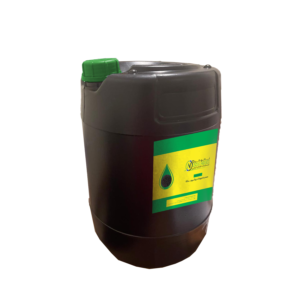Description
Liquid compost is a type of liquid organic fertilizer that is produced from decomposed organic matter, such as plant residues, fruit peels, and animal waste. It is prepared through the process of fermentation and breakdown of organic matter by microorganisms, resulting in a solution rich in nutrients essential for plant growth.
Benefits of liquid compost in agriculture:
Improving soil health:
Liquid compost adds beneficial microorganisms to the soil, which enhances soil health and increases its fertility.
Improves soil structure, allowing air and water to pass better to plant roots.
Increased nutrient absorption:
Contains a wide range of micro and macronutrients such as nitrogen, phosphorus, potassium, and organic matter that facilitate nutrient absorption.
Helps enhance the plant’s ability to absorb nutrients effectively from the soil.
Stimulates plant growth:
Liquid compost stimulates root growth, which leads to faster plant growth and increased yield.
Contains organic acids that encourage the growth of beneficial bacteria in the soil.
Long-term effect:
Unlike chemical fertilizers, liquid compost provides long-term benefits by nourishing the soil and improving its ability to retain nutrients.
Environmentally friendly:
Being a natural product, it is safe to use and does not pollute groundwater or soil as chemical fertilizers might.
It helps reuse organic waste and thus reduce waste.
How to use liquid compost:
Foliar spray:
Liquid compost is diluted with water (usually 1:10) and then sprayed on the leaves of plants, where the plant absorbs the nutrients through the leaves.
Root fertilization:
Liquid compost can be poured around the base of plants or along the planted rows to ensure that the nutrients reach the roots.
Dosage and frequency:
Liquid compost is usually applied once every two weeks or as needed. The frequency depends on the type of crop and the stage of growth.







Reviews
There are no reviews yet.